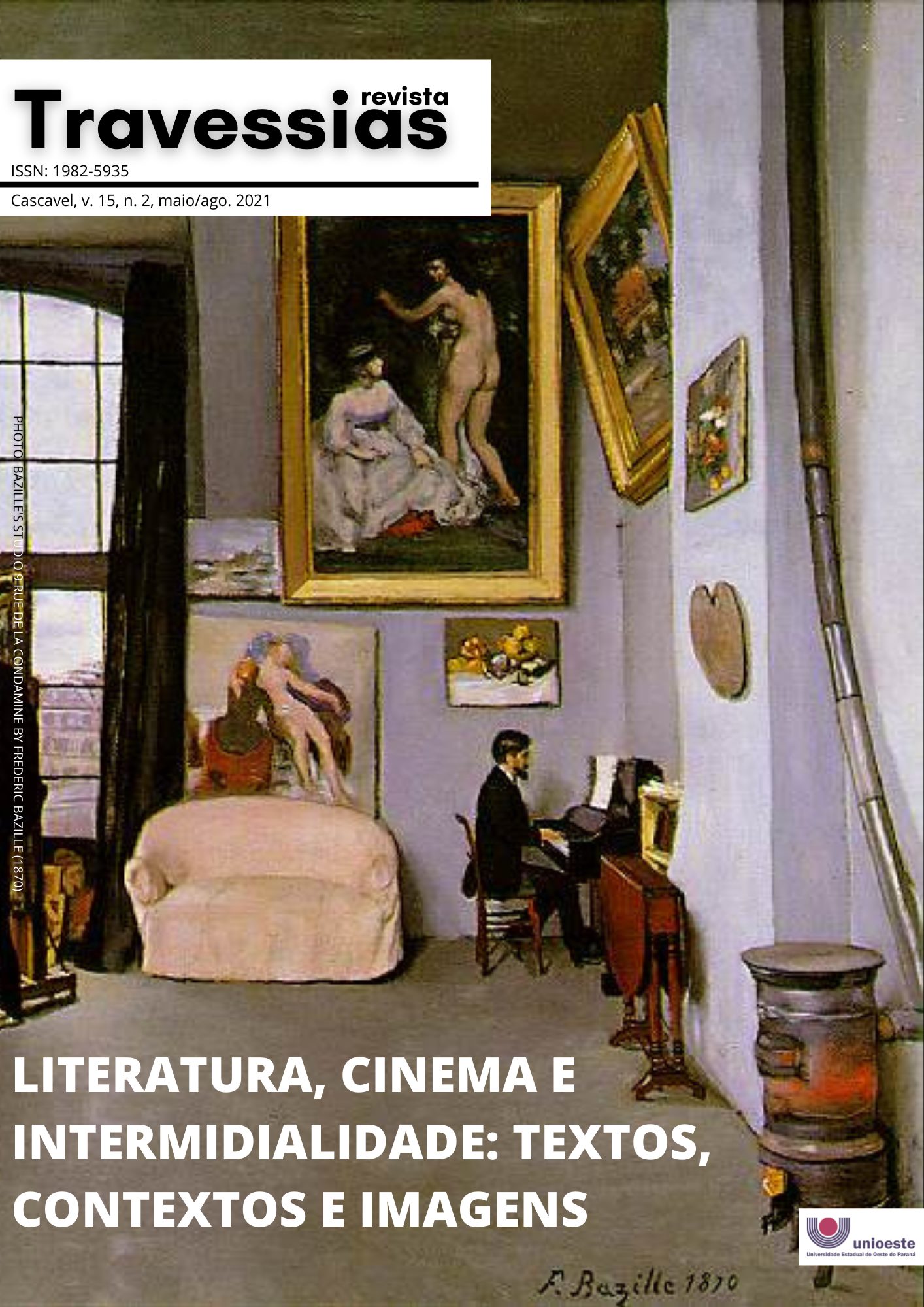Aesthetics by Glauber Rocha and the interfaces with documentary cinema
DOI:
https://doi.org/10.48075/rt.v15i2.27757Keywords:
Cinema Novo, Glauber Rocha, documentary.Abstract
This study intends to reflect on some aspects of Glauber Rocha's cinematographic aesthetics, looking specifically at the confluences established with the aesthetics of documentary cinema. The intention is to discuss how Glauber Rocha appropriates the documentary language to compose his aesthetics of the real and materialize his poetic and political project in a historical and cultural time that became known for the effervescence of the production of an art with an extremely political bias and tone that sought to unveil the reality of the Brazilian people and their identity in the face of North American cultural colonialism. The thinking of the Bahian intellectual and filmmaker is impregnated precisely with the spirit of that time when the production of contemporary art is undergoing a profound change both in Brazil and in Europe, where artists redefined their aesthetics, intertwining them with political causes and, in turn, committed in putting art at the service of social change. The aesthetics of the real that 'blew winds' in the European avant-gardes reverberated in Brazil in the 1960s, being reshaped by the Glauberian perspective, introducing the Brazilian people and their realities into the new Brazilian cinema. The close relationship, and why not say a visceral relationship, between Cinema Novo and the search for an aesthetic of the real leads us to reflect on how the blurring of boundaries between fictional cinema and documentary has reverberated and influenced the composition of the language of Cinema New in Brazil. For the reflections we take as reference Nicholls (2005), Penafria (1999), Xavier (2001) and Simonard (2003).Downloads
References
AMENGHAL, Barthélémy. Glauber Rocha e os caminhos da liberdade. In: GERBER, Raquel. Glauber Rocha. Rio de Janeiro: Paz e Terra, 1977.
BAZIN, Andre. O cinema – ensaios. São Paulo: Editora Brasiliense, 1985.
BARRAVENTO. Direção: Glauber Rocha. Produção: Rex Schindler e Braga Neto. Salvador: Iglu filmes, 1961. (80 min) 35mm.
BENTES, Ivana (org.). Cartas ao mundo. São Paulo: Companhia das Letras, 1997.
GALVÃO, Maria Rita; BERNARDET, Jean-Claude. Cinema: repercussão em caixa de eco ideológica. São Paulo: Brasiliense, 1980.
NICHOLLS, Bill. Introdução ao documentário. Campinas: Papirus, 2005.
PENAFRIA, Manuela. O Filme Documentário: história, identidade, tecnologia. Lisboa: Edições Cosmos, 1999.
PENAFRIA, Manuela. Perspectivas de Desenvolvimento para o Documentarismo. BOCC - UBI. http://ubista.ubi.pt/~comum/welcome.html , 1999.
PENAFRIA, Manuela. O documentário segundo Bazin: Uma leitura de ‘O que é o Cinema?’ de André Bazin. In: Doc On-line, Nº 01, dezembro 2006, 202-210.
ROCHA, Glauber. Revolução do Cinema Novo. Rio de Janeiro: Embrafilme, 1981.
ROCHA, Glauber. O século do cinema. Rio de Janeiro: Alhama/Embrafilme, 1983.
ROCHA, Glauber. Revisão crítica do cinema brasileiro. São Paulo: Cosac Naify, 2003.
ROCHA, Glauber. Experiência ‘Barravento’: confissão sem molduras. Diário de Notícias, Salvador, 1969.
SARACENI, Paulo César. Por dentro do Cinema Novo: minha viagem. Rio de Janeiro: Nova Fronteira, 1993.
SALLES GOMES, Paulo Emílio. Cinema: trajetória no subdesenvolvimento. Rio de Janeiro: Paz e Terra/EMBRAFILME, 1980.
SILVA JÚNIOR, Humberto Alves. Glauber Rocha e a estética do cinema documentário brasileiro. In: CÂMARA, Antonio Silva; LESSA, Rodrigo Oliveira (org.). Cinema Documentário Brasileiro em perspectiva. Salvador: EDUFBA, 2013.
SILVA JÚNIOR, Humberto Alves. Glauber Rocha: Cinema, estética e Revolução. Jundiaí, Paco Editorial, 2016.
SIMONARD, Pedro . Origens do Cinema Novo: a cultura política dos anos 50 até 1964. Achegas.net, Internet, v. 9, p. 4, 2003.
XAVIER, Ismail. O cinema brasileiro moderno. São Paulo: Paz e Terra, 2001.
XAVIER, Ismail. Alegorias do desengano: a resposta do Cinema Novo à modernização conservadora, tese de Livre-docência, ECA/USP, 1989.
Downloads
Published
How to Cite
Issue
Section
License
Creative Copyright Notice
Policy for Free Access Journals
Authors who publish in this journal agree to the following terms:
1. Authors keep the copyright and grant the journal the right of first publication, with the work simultaneously licensed under the Creative Commons Attribution License, which allows sharing the trial with acknowledgment of authorship and initial publication in this journal.
2. Authors are authorized to take additional contracts separately, for non-exclusive distribution of the work version, published in this journal (eg publish in institutional repository or as a book chapter), with acknowledgment of authorship and initial publication in this journal.
3. Authors are allowed and encouraged to publish and distribute their work online (eg in institutional repositories or on their personal page) at any point before or during the editorial process, as this can generate productive changes, as well as increase both impact and citation of the published trial (See The Effect of Free Access).
Creative Commons License
This work is licensed under a Creative Commons Attribution–NonCommercial-shareaswell 4.0 International License, which allows you to share, copy, distribute, display, reproduce, completely or part of the work, since there is no commercial purpose, and authors and source are cited.



